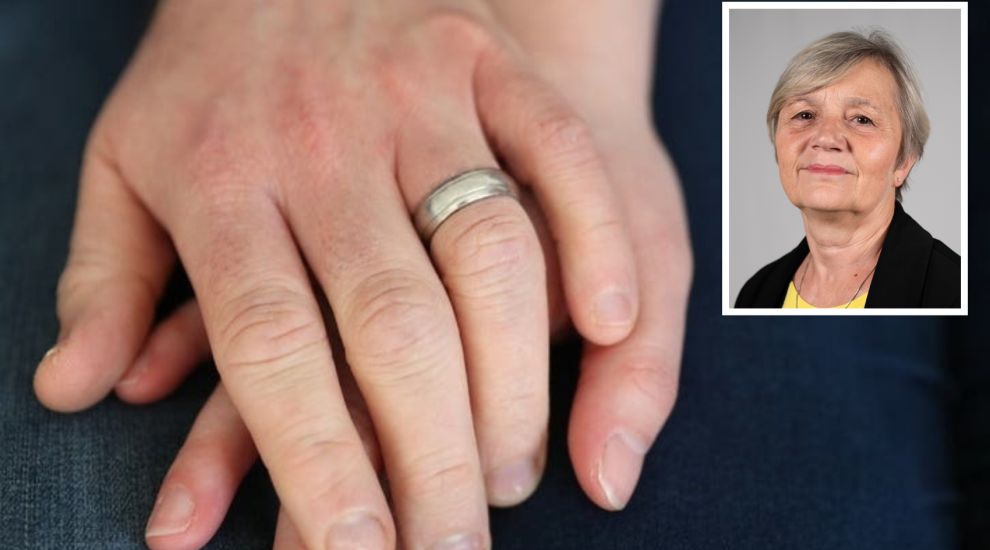


Couples could soon be able to jointly agree to end their marriage without pointing the finger of blame, the Home Affairs Minister has confirmed.
Deputy Mary Le Hegarat said she supports proposals to reform divorce legislation brought forward by her predecessor, Helen Miles.
In response to a written question earlier this week, Deputy Le Hegarat said: " I am fully supportive of the proposals set out by the previous Minister for Justice and Home Affairs in her Ministerial Plan for 2024, for the reform of Jersey’s current divorce processes, including the introduction of no-fault divorce."
She confirmed that the required legislation is expected to be available at the end of 2024 for debate by the States Assembly in 2025.
The Home Affairs Minister added: "I have also approved that similar amendments to the legislative processes surrounding the dissolution of a civil partnership will be addressed as part of this work."
Unlike England, Jersey does not yet allow 'no-fault' divorces which allow spouses to end their marriage simply because they both want to.
Instead, the grounds for divorce in Jersey can be fault-based or based on the amount of time that spouses have been separated.
According to BCR Law, divorce in Jersey is governed by the Matrimonial Causes (Jersey) Law 1949 and Matrimonial Causes Rules 2005.
Divorce is different from annulment and judicial separation.
To obtain a divorce, the following criteria must be met:
Currently, the grounds for divorce in Jersey can be fault-based or based on the amount of time that spouses have been separated.
A petition may be presented by either spouse on the ground that the person on the receiving end:
Or alternatively, on the ground that the parties to the marriage:
Comments
Comments on this story express the views of the commentator only, not Bailiwick Publishing. We are unable to guarantee the accuracy of any of those comments.